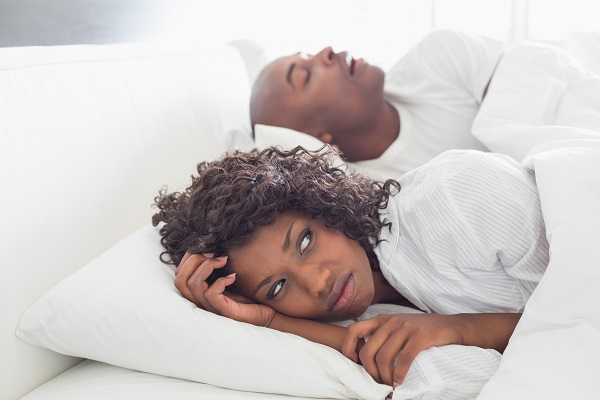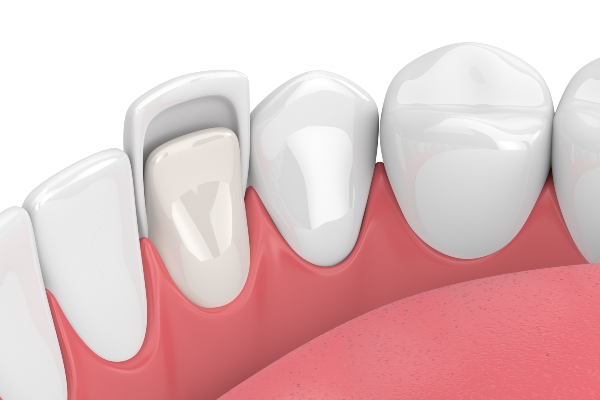4 Signs of Sleep Apnea and What Your Dentist Can Do

Getting a good night’s sleep is important for restoring the body’s function, but for people who have sleep apnea, this may not be possible. In this condition, you might stop breathing many times throughout the night — up to 30 times per hour. Snoring is one of the most obvious signs of sleep apnea, but there are other symptoms as well. If you are experiencing any of these symptoms, then it is important to seek treatment as soon as possible.
Signs of sleep apnea
One sign of sleep apnea is that a patient is a restless sleeper. People who have sleep apnea will often toss and turn during the night. People who find themselves thrashing, waking up under a pile of blankets or jerking about might have sleep apnea. Sleep apnea causes breathing to become disrupted, so individuals will be more likely to struggle while sleeping.
Another sign of sleep apnea is always being tired. Because sleep apnea causes individuals to wake up many times throughout the night, this can cause the quality of the sleep to deteriorate. People who have sleep apnea might fall asleep at different times during the day, such as when watching television. Because of this lack of sleep, people may also get sick more often. The immune system suffers when people do not get enough sleep.
Snoring is one of the most common signs of sleep apnea. When the upper airway is obstructed, it will vibrate when an individual takes a breath. While these two things often go together, snoring is not always a sign of sleep apnea. However, the louder that someone snores, the more likely that person is to have sleep apnea. If a partner notices that the snoring seems to stop and start, then it is very likely that the individual has sleep apnea. The pauses in breathing can happen up to hundreds of times in one night.
Dental problems such as worn teeth are often another sign of sleep apnea. Patients who have sleep apnea often grind the teeth during the night. This can cause the teeth to wear down. It can also cause increased cavities for patients.
Treatment for sleep apnea from a dentist
For individuals who have mild to moderate sleep apnea, treatment with an oral appliance may be an option. A dentist can fit a patient for this appliance. It works by preventing the lower jaw or tongue from falling back over the airway during sleep. This appliance can be used either by itself or with a continuous positive airway pressure (CPAP) machine.
Visit your dentist today
Sleep apnea is a serious condition that should not be ignored. Patients who have sleep apnea should speak with a dentist about getting the right treatment for this condition. Your dentist can create a customized appliance that can prevent your tongue or jaw from covering your airway. Contact a dentist today to begin getting treatment for your sleep apnea.
Request an appointment here: https://www.smilebeautification.com or call Precision Smiles. at (201) 204-1355 for an appointment in our Hackensack office.
Check out what others are saying about our services on Yelp: Read our Yelp reviews.
Recent Posts
Dental veneers can improve your dental health. Your dentist can present many types of this dental restoration. Understanding the types of veneers available can broaden your options. Here are the different types of dental veneers that you must consider.These are the most common types of dental veneers. The material in these restorations is feldspar, which…
Dental veneers help patients achieve a picture-perfect smile. However, these wafer-thin shells go over the natural teeth, which begs the question: Are dental veneers comfortable? When installed correctly, veneers feel just like your real teeth. In this article, we will explore veneers, how they work, and how they manage to feel and look natural.Veneers help…
Dental veneers are often more advantageous than other cosmetic dental procedures. Some cosmetic dental procedures are quick but need retreatment. Others need preparation and months to be effective. Veneers take a short time to get but can last for at least a decade with proper care and maintenance. Knowing the benefits of these restorations over…
If you are one of the many individuals who suffer from TMJ, you may be researching the effects Botox® has on this problem. Believe it or not, it can work to help some of the unfortunate aspects of this condition. TMJ can sometimes make everyday activities and simple things we take for granted, like chewing,…


